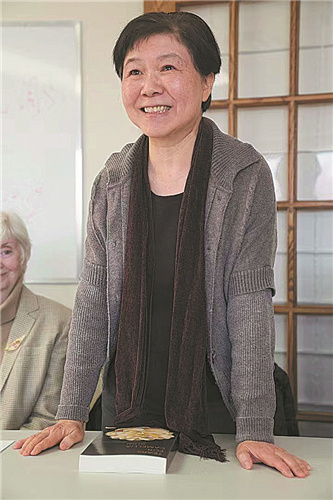History's hidden figures
By Rena Li | China Daily | Updated: 2022-06-02 07:35

Upon arriving in Canada from China 35 years ago, however, Li was shocked by some of the feedback from the hero's compatriots. Bethune was not seen as perfect as his shining image in China. Instead, he has been ignored and even hated by some in his home country just because he was a communist.
"It took me a long time before I figured out the fundamental issue leading people into endless ideological conflicts, and I actually got the inspiration from one of my students in class 20 years ago," says Li, who has taught at the university in Ontario since 1997.
In The Missing Archives, Li discusses the original, biblical meaning of Jubilee-a celebratory time, whereby, every 50th year, debts would be forgiven, there was a restitution of property and a sharing of wealth, along with the forgiveness of sins and the freeing of slaves.
After consultations with many scholars including Reverend Arnold Bethune in Guelph, Reverend Megan Collings-Moore and Reverend Scott McLeod at Renison University College, she was convinced that the idea of Jubilee was originally set up to curb the greed of human nature. The real meaning of Jubilee has been distorted and abandoned deliberately because of the uncurable human disease.
"Finally, I figured out why Bishop Hall, a Christian, and Norman Bethune, a communist, would share so much in common and had dedicated (themselves) to the same goal for improving the world," Li says. "A true Christian could easily turn into a true communist. The main problem today is that there are too many fake believers and liars (using) double standard ideological weapons to fool common people in the world."
Before Bethune traveled to China in 1938, where he became a battlefield surgeon for the Chinese Communist Army under Mao, he had worked with many medical workers and social activists in Montreal to advocate for medical care for the poor and needy. He also stated that a doctor should not be concerned with making money.
After Bethune died in 1939, he became a national hero in China.
Mao wrote: "Comrade Bethune's spirit, his utter devotion to others without any thought of self, was shown in his great sense of responsibility in his work and his great warmheartedness toward all people. … No one who returned from the front failed to express admiration for Bethune whenever his name was mentioned, and none remained unmoved by his spirit. … Every communist must learn this true communist spirit from comrade Bethune."
There have been heated discussions among scholars from China and Canada at the conferences organized by Li over the past few years. Some insisted that Bethune represented the spirit of the communist ideal.
Some argued that he was in reality a humanitarian under a red cape, and that it was better to portray him that way to defend him more easily against the negative view of communism that has long been propagated in some quarters.
"Ever since I figured out the biblical meaning of Jubilee, however, I believe that there should have been no fundamental difference between the two," Li says. "In the unprecedented pandemic facing the whole world today, it is more meaningful for everyone to learn from the spirit of Bethune."
Many of Li's writings are focused on comparative cultures, based on real figures in history. In addition to a few books on Bethune, Li has written about James Menzies, the Canadian missionary in China who discovered the site of the oracle bones and became a self-trained archaeologist. His son, Arthur Menzies, who was born in China in a missionary compound, was the Canadian ambassador to China in the 1970s.
Li also wrote about an American scholar, Thomas Arthur Bisson, who specialized in East Asian politics and economics. Bisson went to China as a missionary and interviewed Mao in 1937. He was persecuted in the 1950s in his own country and eventually set up the Chinese-language program at Renison University College.
"I am often deeply touched by those people's stories since they demonstrated to me what is supposed to be a true Christian," Li says.
In The Missing Archives, Hall says: "It is fear that sends presidents, prime ministers and special envoys around the world. Fear that dominates everywhere, fear that a rival race, a rival ideology or rival nation will take away our markets or our freedoms to live. … None of us know how today's confusion may end."
More than 60 years on, and Hall's concerns still have realistic significance today, according to Li.
"People like Bishop Hall and Norman Bethune left us decades ago, but the spirit they demonstrated should not be forgotten. The simple purpose is to understand and achieve a common destiny for all mankind," Li says.
In light of continuous battles and wars being waged, Li says she is compelled to think about what a "community with a shared future for mankind" actually means.
"By telling the true stories of these historic figures, I have made a humble effort of trying to remove the obstacles on the path to mutual understanding and a peaceful future for the world," she says.
























